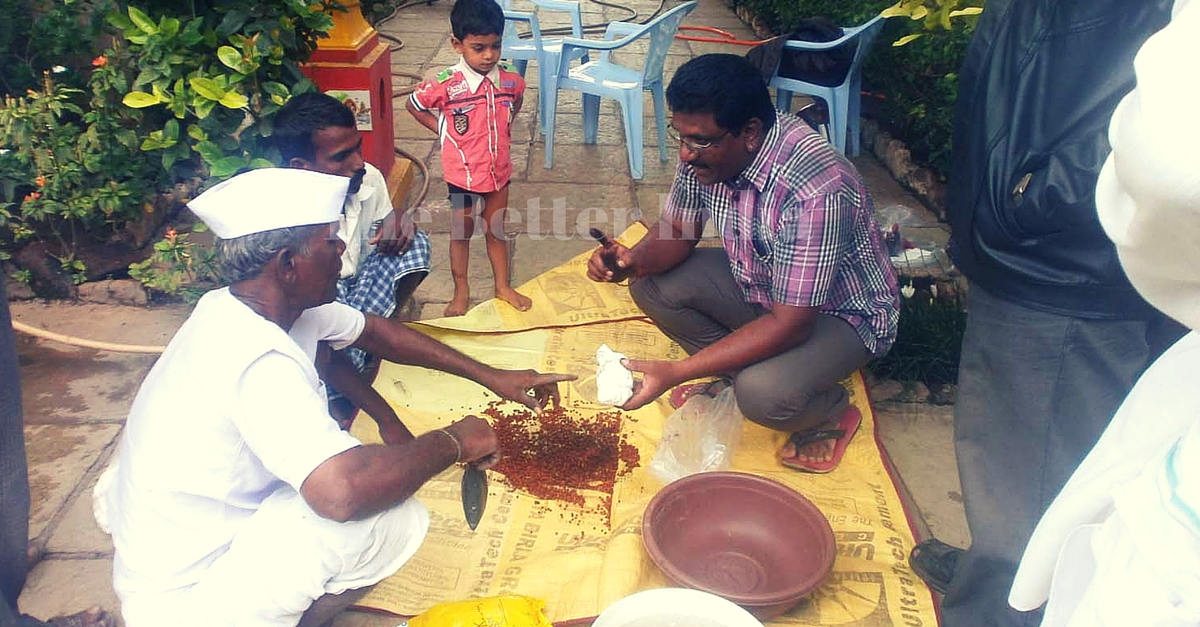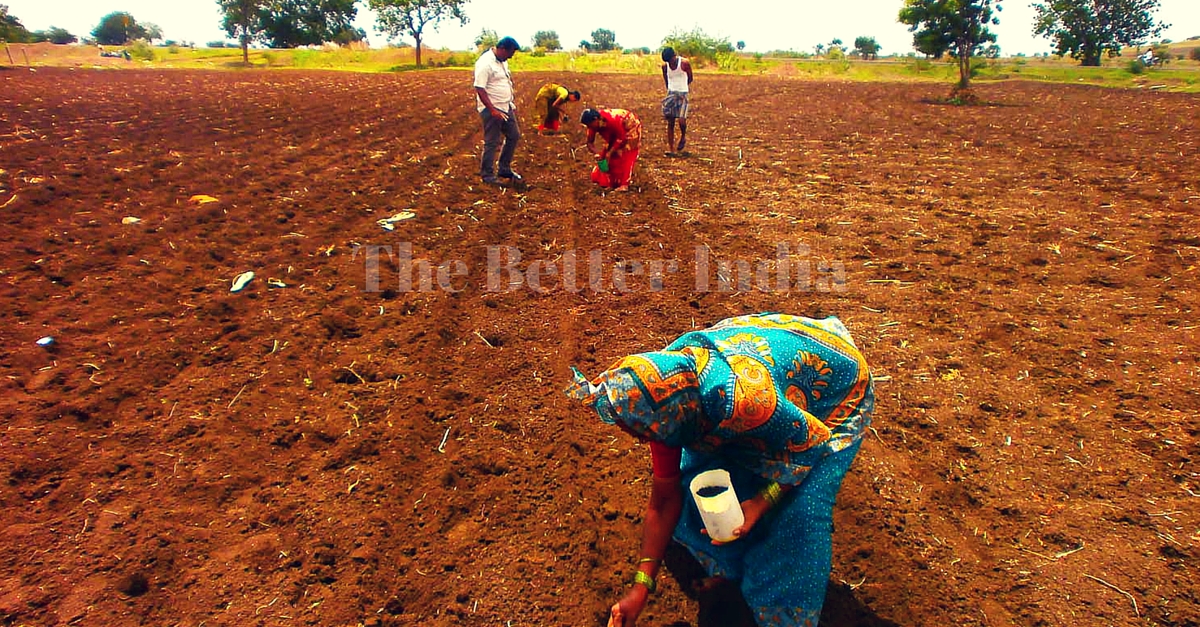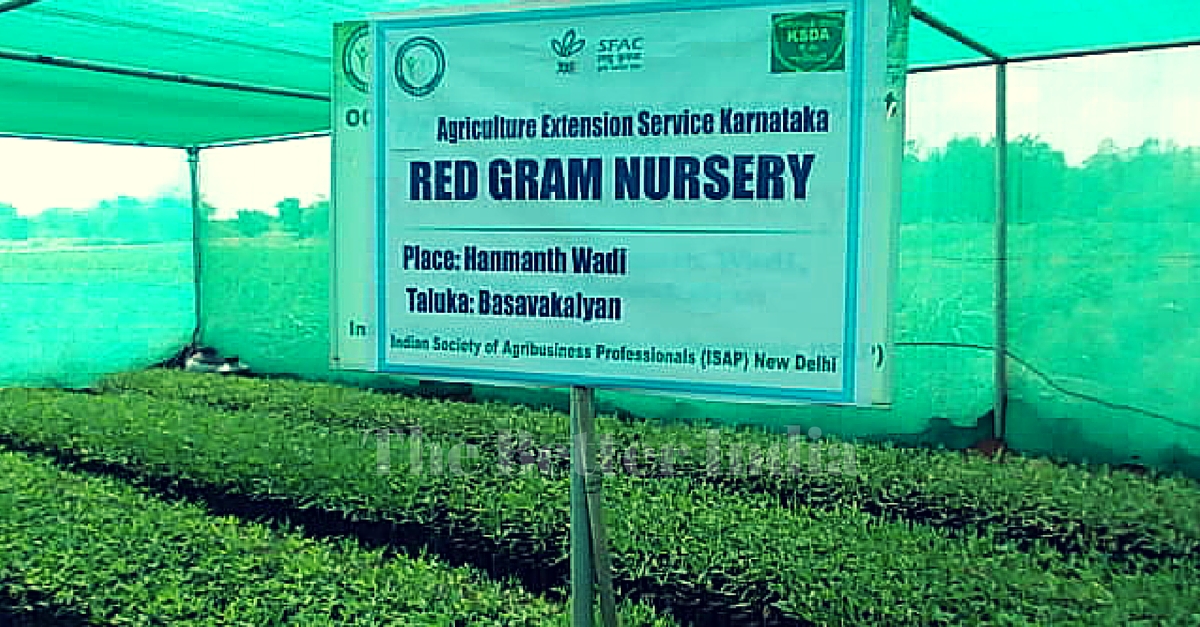How This Organisation Became the Backbone of Thousands of Farmers in India
ISAP is one of the largest networks of agriculture and allied sector professionals in India. Read about how it acts as a bridge between India's rural communities and other stakeholders.

The Indian Society of Agribusiness Professionals has been working for the empowerment of farmers in India since 2001. It is bridging the gap between rural communities and other stakeholders through innovative use of ICT across the country.
T here’s a farmer in a small village in Bidar, Karnataka, who needs help with setting up a green house. He doesn’t know how to go about it. That’s when his neighbour tells him about a helpline – Kisan Call Centre. The farmer connects with experts. And within no time, he is equipped with all the information he needs.
Kisan Call Centre is one of the many initiatives of ISAP – Indian Society of Agribusiness Professionals – an organisation that is engaging more than 150,000 farmers across India.
ISAP, which has been active in the field of agriculture for the last 15 years, is a non-profit organisation working for the empowerment of rural communities by providing them sustainable agriculture solutions.
ISAP was the brainchild of Sunil Khairnar. After extensively working in the agribusiness industry in India, he realised there was so much potential in the field of Indian agriculture that hadn’t been tapped as yet. He wanted to bridge the gap between farmers and experts. Mr. Khairnar also realised the way to fill this gap was by using the power of information. In fact, ISAP’s mantra has been ICT – information and communications technology.
Using ICT, the organisation has been able to reach out to thousands of farmers.

“The organisation, which started out with just a few employees, now has as many as 330 employees,” says Senior Project Manager Gaurav Vats.
What ISAP does
ISAP is currently implementing various projects across India. From an integrated farming system project in Rajasthan to an agriculture extension system project in Karnataka, ISAP is proving to be a backbone to farmers across the country.
The organisation’s targeted interventions ensure economic development in rural India.
“Our processes are very meticulous,” says Karnataka project head, Chandrashekar Maradi.
ISAP organises farmers into groups at various levels. At the grassroots level, the farmers are divided into Farmer Interest Groups (FIGs). At the taluk level, FIGs come together to form Farmer Producer Organisations (FPOs).
“We believe that there is strength in numbers. When the farmers are organised into groups, they have more bargaining power. For instance, because they purchase seeds as a group, they get them at wholesale prices,” says Mr. Chandrashekar.
The organised groups are also guided on selling their produce. ISAP helps them by providing training on the best harvesting methods, gives them access to warehouses, and so on.
The Agriculture Extension Project was started in 2010 in north Karnataka.

It was launched to improve the production of pulses. In order to achieve this goal, the project stressed on soil and nutrient management. ISAP also helps farmers in marketing their produce.
“We have started Kisan Fresh, a grocery mart, in north Karnataka. Farmers sell fresh vegetables, organic jaggery, pulses, masala powders, and much more,” says Mr. Chandrashekar.
How it’s impacting lives
Gundappa, a farmer in Pattan village, is one of the beneficiaries of the project in north Karnataka. This farmer, who used to only cultivate red gram, was introduced to ISAP’s integrated farming system. Now, he cultivates pulses, grows vegetables, and also raises cattle on his farm.
By expanding his produce, Gundappa has shielded himself from the vagaries of the weather, thereby cushioning himself against disaster in case one crop fails. Gundappa’s success story is an inspiration to many — he is often invited to lecture farmers in his region.
The organisation is also involved in a host of other projects.

For instance, it provides training to rural youth to help them create small and micro enterprises. Together with the National Institute of Agricultural Extension Management in Hyderabad, ISAP is running an entrepreneurship development programme for unemployed youth in 12 states. After the training, it helps students set up their own ventures. Under this scheme, ISAP has trained over 4,000 people so far.
ISAP also uses community radio stations to reach out to farmers. It gives out information on agricultural practices, government schemes, etc. Kisan Vani (90.4 FM), at Sironj in Vidisha district of Madhya Pradesh, was the first agriculture-based community radio station in the state. ISAP now plans to set up more such stations in Rajasthan.
The organisation has provided training to women’s self-help groups (SHGs) in poultry farming, washing power production, vermi-compost, and other relevant businesses. It has also helped SHGs in opening bank accounts through the NABARD-SHG bank linkage programme in Rajasthan. ISAP is funded by various organisations and grants.
It has applied for the HCL Grant and through this grant it wants to set up three skill development community colleges in Rajasthan, Uttar Pradesh and Bihar. Through these colleges, it aims to provide certified skill training and a recognised Bachelor of Vocational Training (B.Voc.) degree to unemployed rural youth. The project aims to directly impact 3,600 beneficiaries from poor households.
To know more about ISAP’s initiatives, contact the team on their website.
About HCL Grant
There are about 3.3 million NGOs in India doing commendable work in various areas aimed at inclusion and development. The HCL Grant has been launched to support the institutionalization of the Fifth Estate comprising individuals and institutions formed and led by the citizens of the country through the creation of strong governance frameworks and management capabilities. An endeavor of the HCL Foundation, HCL Grant envisions to build sustainable communities by supporting NGOs and individuals who are doing path-breaking work towards high impact transformation in rural India. In the first year, HCL Grant has identified the best NGOs in the area of rural education. To know more about the HCL Grant: http://www.hcl.com/hcl-grant
Like this story? Or have something to share? Write to us: [email protected], or connect with us on Facebook and Twitter (@thebetterindia).
This story made me
- 97
- 121
- 89
- 167
Tell Us More
We bring stories straight from the heart of India, to inspire millions and create a wave of impact. Our positive movement is growing bigger everyday, and we would love for you to join it.
Please contribute whatever you can, every little penny helps our team in bringing you more stories that support dreams and spread hope.



















